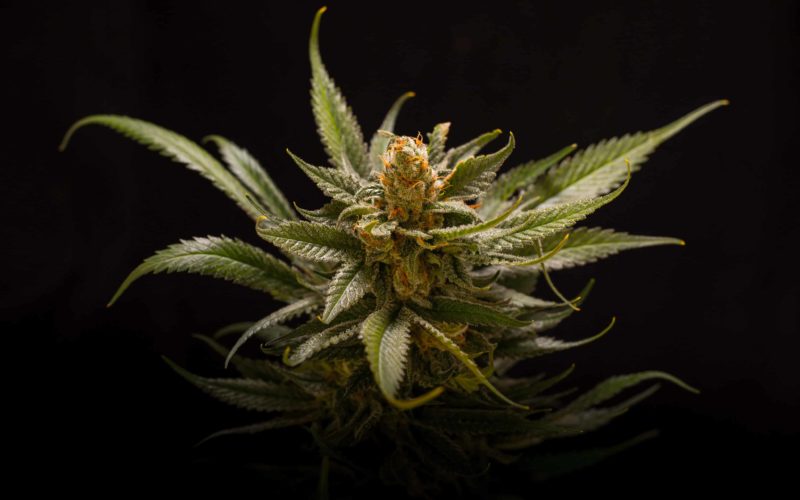Business
Illinois Issues 149 Cannabis Retailer Licenses

Illinois regulators announced on Friday that 149 conditional licenses for adult-use marijuana retailers have been issued by the state.
Illinois Governor JB Pritzker announced on Friday that the Illinois Department of Financial and Professional Regulation (IDFPR) has issued 149 conditional state licenses for adult-use cannabis retailers to applicants selected in three lotteries held earlier this summer. All of the selected businesses qualify as social equity applicants under the state’s Cannabis Regulation and Tax Act, the 2019 bill that legalized recreational pot for adults statewide.
“Illinois is leading the way in addressing the War on Drugs as no state has before, and dispensary ownership that reflects our state’s diversity is a product of that commitment,” Pritzker said on Friday in a statement from the governor’s office. “These licenses represent a significant step toward accountability for the decades of injustice preceding cannabis legalization. Illinois will continue to deliver on the promises of putting equity at the forefront of this process.”
Retail Sales Began in Illinois Two Years Ago
Illinois’ Cannabis Regulation and Tax Act was the first adult-use cannabis legalization measure in the United States to be passed by a state legislature, rather than through a ballot initiative approved by voters. Sales of adult-use cannabis began at existing medical dispensaries in 2020.
But licensing adult-use cannabis retailers has been marked by setbacks and legal challenges over the state’s system to license recreational cannabis businesses. Much of the controversy has centered on the state’s efforts to ensure that members of communities negatively impacted by prohibition and enforcement policies have a path to business ownership in the newly legal adult-use cannabis industry. The first 75 licenses were originally slated to be awarded in May 2020, but lawsuits have delayed progress several times.
“Since 2019, we have worked diligently to ensure communities disproportionately harmed by cannabis prohibition and discriminatory law enforcement are included in the adult-use cannabis industry,” said Senate Majority Leader Kimberly A. Lightford. “With the release of 149 Conditional Adult Use Dispensing Organization Licenses, Illinois has become a frontrunner in cannabis minority ownership and will continue to drive social equity, social justice and inclusion into the marketplace.”
Among the conditional use licensees selected through the lottery process, 41% are majority Black-owned, 7% are majority white-owned, and 4% are majority Latino-owned, while 38% of awardees did not disclose the race of their owners. State officials noted that “Illinois has made and executed the greatest commitment of adult use cannabis tax revenue to community reinvestment, expunged the most criminal history records involving cannabis, and has the highest rate of minority ownership of any state reporting/collecting ownership demographic data in the country.”
Licensees Have Six Months To Receive Final Approval
Applicants now have 180 days to secure their business location and receive final approval for licensing from state regulators. If conditional licensees are unable to secure a suitable business location within that time, they are permitted to file for a 180-day extension to complete the process.
“The release of these licenses means a transformation of the retail side of Illinois’ cannabis industry, creating more opportunities for individuals from all backgrounds to reap the benefits of legalization as employees and ancillary service providers,” said Mario Treto, Jr., Secretary of the Illinois Department of Financial and Professional Regulation. “These licensees continue to lay the groundwork for a cannabis industry more diverse and equitable than any other in the country. I am extremely proud of our team for their work over the past two years and look forward to working with these new businesses [sic] owners throughout the next stages of licensure.”
Many of the business owners selected as conditional adult-use retailer licensees are likely to face challenges obtaining capital to secure a site and get their operation up and running. Through a separate program administered by the Illinois Department of Commerce and Economic Opportunity (DCEO), the state offers low-interest loans to qualified licensed companies through its Social Equity Cannabis Loan Program.
The first round of social equity license applicants are expected to finalize loan agreements directly with DCEO’s participating lenders in the coming weeks, with the next phase of the loan program launching in the near future. Additional information about the Social Equity Cannabis Loan Program is available online. DCEO also funds free licensing and post-licensing technical assistance through their partners at Oakton Community College, The Trep School, the Women’s Business Development Center, and the University of Illinois Chicago Law School. Additional information on these resources and how to access them can be found on the program website.
One of the selected conditional applicants, Akele Parnell, a co-owner of Marigrow, plans to open a dispensary in the Chicago neighborhood of Lincoln Park. The business has already raised the necessary capital and is ready to move on to the next step in the process.
“We have our financing,” Parnell told Crain Chicago. “Now we have to go through rezoning.”
“It was quite the wait. It’s a relief now to have the license in hand,” Parnell added. “There’s a lot of work ahead.”
Source: https://hightimes.com/news/illinois-issues-149-cannabis-retailer-licenses/
Business
New Mexico cannabis operator fined, loses license for alleged BioTrack fraud

New Mexico regulators fined a cannabis operator nearly $300,000 and revoked its license after the company allegedly created fake reports in the state’s traceability software.
The New Mexico Cannabis Control Division (CCD) accused marijuana manufacturer and retailer Golden Roots of 11 violations, according to Albuquerque Business First.
Golden Roots operates the The Cannabis Revolution Dispensary.
The majority of the violations are related to the Albuquerque company’s improper use of BioTrack, which has been New Mexico’s track-and-trace vendor since 2015.
The CCD alleges Golden Roots reported marijuana production only two months after it had received its vertically integrated license, according to Albuquerque Business First.
Because cannabis takes longer than two months to be cultivated, the CCD was suspicious of the report.
After inspecting the company’s premises, the CCD alleged Golden Roots reported cultivation, transportation and sales in BioTrack but wasn’t able to provide officers who inspected the site evidence that the operator was cultivating cannabis.
In April, the CCD revoked Golden Roots’ license and issued a $10,000 fine, according to the news outlet.
The company requested a hearing, which the regulator scheduled for Sept. 1.
At the hearing, the CCD testified that the company’s dried-cannabis weights in BioTrack were suspicious because they didn’t seem to accurately reflect how much weight marijuana loses as it dries.
Company employees also poorly accounted for why they were making adjustments in the system of up to 24 pounds of cannabis, making comments such as “bad” or “mistake” in the software, Albuquerque Business First reported.
Golden Roots was fined $298,972.05 – the amount regulators allege the company made selling products that weren’t properly accounted for in BioTrack.
The CCD has been cracking down on cannabis operators accused of selling products procured from out-of-state or not grown legally:
- Regulators alleged in August that Albuquerque dispensary Sawmill Sweet Leaf sold out-of-state products and didn’t have a license for extraction.
- Paradise Exotics Distro lost its license in July after regulators alleged the company sold products made in California.
Golden Roots was the first alleged rulebreaker in New Mexico to be asked to pay a large fine.
Source: https://mjbizdaily.com/new-mexico-cannabis-operator-fined-loses-license-for-alleged-biotrack-fraud/
Business
Marijuana companies suing US attorney general in federal prohibition challenge

Four marijuana companies, including a multistate operator, have filed a lawsuit against U.S. Attorney General Merrick Garland in which they allege the federal MJ prohibition under the Controlled Substances Act is no longer constitutional.
According to the complaint, filed Thursday in U.S. District Court in Massachusetts, retailer Canna Provisions, Treevit delivery service CEO Gyasi Sellers, cultivator Wiseacre Farm and MSO Verano Holdings Corp. are all harmed by “the federal government’s unconstitutional ban on cultivating, manufacturing, distributing, or possessing intrastate marijuana.”
Verano is headquartered in Chicago but has operations in Massachusetts; the other three operators are based in Massachusetts.
The lawsuit seeks a ruling that the “Controlled Substances Act is unconstitutional as applied to the intrastate cultivation, manufacture, possession, and distribution of marijuana pursuant to state law.”
The companies want the case to go before the U.S. Supreme Court.
They hired prominent law firm Boies Schiller Flexner to represent them.
The New York-based firm’s principal is David Boies, whose former clients include Microsoft, former presidential candidate Al Gore and Elizabeth Holmes’ disgraced startup Theranos.
Similar challenges to the federal Controlled Substances Act (CSA) have failed.
One such challenge led to a landmark Supreme Court decision in 2005.
In Gonzalez vs. Raich, the highest court in the United States ruled in a 6-3 decision that the commerce clause of the U.S. Constitution gave Congress the power to outlaw marijuana federally, even though state laws allow the cultivation and sale of cannabis.
In the 18 years since that ruling, 23 states and the District of Columbia have legalized adult-use marijuana and the federal government has allowed a multibillion-dollar cannabis industry to thrive.
Since both Congress and the U.S. Department of Justice, currently headed by Garland, have declined to intervene in state-licensed marijuana markets, the key facts that led to the Supreme Court’s 2005 ruling “no longer apply,” Boies said in a statement Thursday.
“The Supreme Court has since made clear that the federal government lacks the authority to regulate purely intrastate commerce,” Boies said.
“Moreover, the facts on which those precedents are based are no longer true.”
Verano President Darren Weiss said in a statement the company is “prepared to bring this case all the way to the Supreme Court in order to align federal law with how Congress has acted for years.”
While the Biden administration’s push to reschedule marijuana would help solve marijuana operators’ federal tax woes, neither rescheduling nor modest Congressional reforms such as the SAFER Banking Act “solve the fundamental issue,” Weiss added.
“The application of the CSA to lawful state-run cannabis business is an unconstitutional overreach on state sovereignty that has led to decades of harm, failed businesses, lost jobs, and unsafe working conditions.”
Business
Alabama to make another attempt Dec. 1 to award medical cannabis licenses

Alabama regulators are targeting Dec. 1 to award the first batch of medical cannabis business licenses after the agency’s first two attempts were scrapped because of scoring errors and litigation.
The first licenses will be awarded to individual cultivators, delivery providers, processors, dispensaries and state testing labs, according to the Alabama Medical Cannabis Commission (AMCC).
Then, on Dec. 12, the AMCC will award licenses for vertically integrated operations, a designation set primarily for multistate operators.
Licenses are expected to be handed out 28 days after they have been awarded, so MMJ production could begin in early January, according to the Alabama Daily News.
That means MMJ products could be available for patients around early March, an AMCC spokesperson told the media outlet.
Regulators initially awarded 21 business licenses in June, only to void them after applicants alleged inconsistencies with how the applications were scored.
Then, in August, the state awarded 24 different licenses – 19 went to June recipients – only to reverse themselves again and scratch those licenses after spurned applicants filed lawsuits.
A state judge dismissed a lawsuit filed by Chicago-based MSO Verano Holdings Corp., but another lawsuit is pending.
Source: https://mjbizdaily.com/alabama-plans-to-award-medical-cannabis-licenses-dec-1/
-

 Business2 years ago
Business2 years agoPot Odor Does Not Justify Probable Cause for Vehicle Searches, Minnesota Court Affirms
-

 Business2 years ago
Business2 years agoNew Mexico cannabis operator fined, loses license for alleged BioTrack fraud
-

 Business2 years ago
Business2 years agoAlabama to make another attempt Dec. 1 to award medical cannabis licenses
-

 Business2 years ago
Business2 years agoWashington State Pays Out $9.4 Million in Refunds Relating to Drug Convictions
-

 Business2 years ago
Business2 years agoMarijuana companies suing US attorney general in federal prohibition challenge
-

 Business2 years ago
Business2 years agoLegal Marijuana Handed A Nothing Burger From NY State
-

 Business2 years ago
Business2 years agoCan Cannabis Help Seasonal Depression
-

 Blogs2 years ago
Blogs2 years agoCannabis Art Is Flourishing On Etsy









